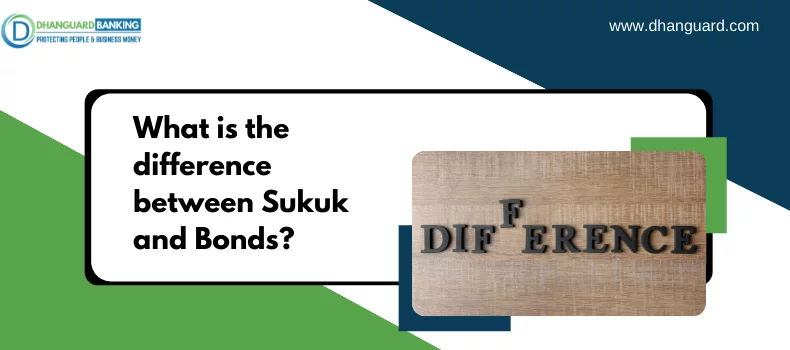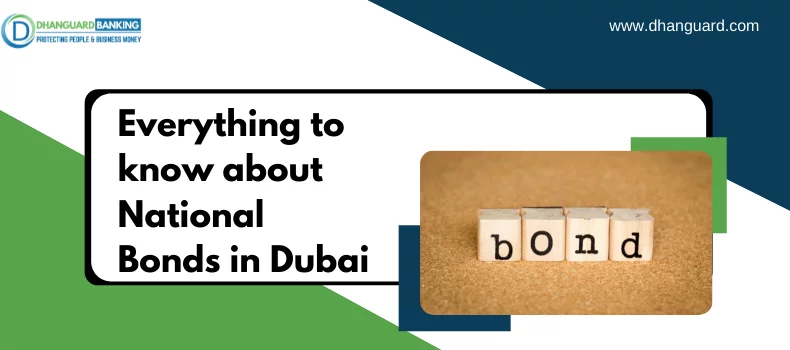Although using bonds as a reference point is a typical starting point for teaching sukuk, it is crucial to recognize that there are several key differences.
Sukuk are Islamic financial instruments that prevent Riba (producing money from money, i.e. interest or usury). Bonds, on the other hand, are particularly Riba because they have a fixed interest rate. By writing this blog Dhanguard will make you understand the difference between Sukuk and Bonds.
Difference between Sukuk and Ordinary Bond
The domain for investment and finance has been changed. This and other information can be found at fincyclopedia.net.
Sukuk are financial instruments and certificates of equal value that indicate undivided ownership of tangible assets, projects, usufructs, services, and, in general, any economic activity. The holder of a sukuk is entitled to receive periodic payments based on the underlying's proceeds.
Bonds are interest-bearing or discounted securities that pay the bearer a predetermined amount of money (interest) at predetermined intervals in addition to the face value (principal) upon maturity.
- Sukuk denotes asset ownership. Bonds are a type of debt instrument.
- The assets used to underpin sukuk are Shariah-compliant. Bonds may be backed by assets that contain products or services that are prohibited by Islam.
- Sukuk are valued based on the value of the assets that back them up. The price of a bond is determined by its credit rating.
- Sukuk can appreciate in value as the value of the assets rises. Bond profits are Riba because they relate to fixed interest.
- When you sell a sukuk, you're giving up ownership of the assets that back it up. Bonds are a type of debt that can be sold.
Rather than being backed by debt, sukuk are backed by tangible assets. Sukuk ownership denotes ownership of a valuable asset. Although a bond may also imply this, the true definition of a bond is merely a debt commitment. The relationship between a bond issuer and a customer is fundamentally different from the one between a sukuk issuer and a sukuk purchaser. The consumer acts as the loaner and the bond issuer as the loan recipient in the event of a bond. The loan in this scenario has a set interest rate, making it Riba. Rather of joining in an implied loan agreement, the purchaser of a sukuk purchases a valuable asset.
Another significant distinction between bonds and sukuk certificates is that the assets included in sukuk certificates are compliant with all Islamic rules. In the case of bonds, the bond certificate may be backed by non-Shariah-compliant assets that are bundled with other types of assets without the consumer's knowledge. The purchaser of a sukuk can rest certain that the certificate's value is based on assets that benefit the public good and are not linked to activities or products that are prohibited by Islam.
Although some may argue that the distinctions between sukuk and bonds are just technical, Muslims value these distinctions. Indeed, one of the drivers of many of the world's economic issues in the last decade has been the practice of gaining solely from money, at the price of productivity and real people. Bubbles emerge, burst, and subsequently lead to recessions and depressions due to interest and artificial inflation of prices based on debt rather than genuine worth. Unlike bonds, sukuk certificates are priced based on the true market value of the assets that back the sukuk certificate. Bond pricing is determined by the issuer's credit rating.
The fundamental advantage of sukuk over regular bonds is that the value of the sukuk certificate increases in proportion to the assets underlying it. If the value of the asset rises, so does the value of the sukuk-backed ownership of that asset. This is not a property of bonds. It is impossible to increase the principal debt in a bond, and any growth in revenue is due to the set interest rate rather than any genuine improvement in value or productivity.
While the Essence of Sukuk and Regular bonds is quite similar, there are five key distinctions to be Aware of
- Sukuk are backed by tangible assets, and investors are given a portion of ownership in the asset with genuine value. Although a bond's ownership can also show this, a bond's ownership only denotes a debt obligation.
- Assets that are Sharia-compliant vs. those that aren't – Sukuk must be backed by assets that are Sharia-compliant. They cannot include investments that generate the majority of their revenue from the sale of alcoholic beverages, pork products, pornography, gambling, military equipment and weapons, or tobacco, as well as those that engage in unethical business practices such as banks and other interest-paying institutions.
- The face value of a Sukuk is determined by the market value of the underlying asset, whereas the face value of a bond is determined by the issuer's creditworthiness, including its rating.
- Sukuk can increase in value as their underlying assets improve in value, and vice versa, losses and costs associated with the underlying asset can affect the Sukuk value. Bondholders are unaffected by the performance of the underlying asset.
- Investors selling Sukuk on the secondary market are selling ownership of the assets underpinning them, as opposed to selling debt. Investors who sell bonds on the secondary market are actually trading debt on the underlying loan agreement.
Conclusion
This isn't to imply that bonds and sukuk aren't related in some ways. Both of these items can be sold on the secondary market for cash. Bonds and sukuk can both be ranked by ranking institutions based on the strength of their backing. Bond and sukuk designs and issuers vary similarly, providing consumers with a wide range of options when researching these financial instruments. Connect with Experts of Dhanguard if you still have any confusion related to Sukuk and Bonds.
DhanGuard: All-in-One Solution for Business Setup in Dubai, UAE
DhanGuard is your ultimate one-stop solution for all your business needs. Whether you’re planning to set up a new company or expand your existing business in the UAE, we’ve got you covered with our comprehensive range of services. From Business Setup in UAE and Company Formation in Dubai to managing your financial and legal compliance, we provide everything you need under one roof.
Our services include:
- Company Formation in UAE and Dubai
- Opening a Business Bank Account in UAE and Dubai with a 99% success rate
- VAT & Corporate Tax Compliance
- Accounting, Bookkeeping, and Auditing Services
- Trade License Renewal
- Golden Visa Assistance
Let DhanGuard make your journey of Business Setup in Dubai seamless and hassle-free!






